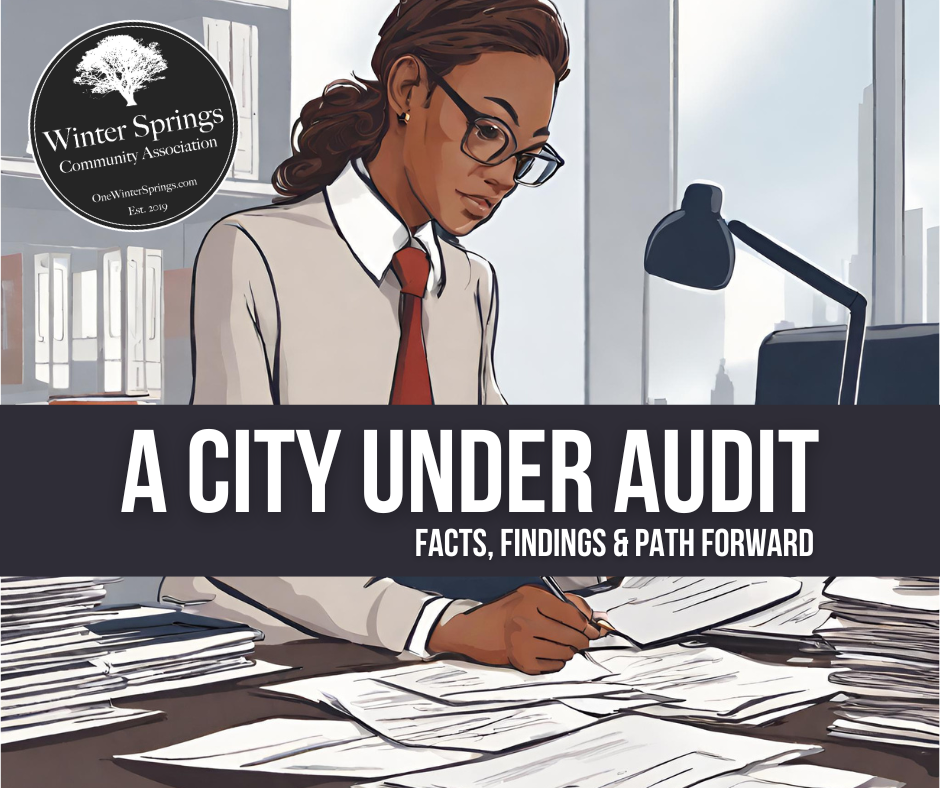
“Finding 4: Contrary to State law, the City did not estimate fees assessed to fulfill public records requests requiring extensive information technology resources or clerical or supervisory assistance based on actual costs. In addition, the City did not always promptly respond to public records requests.”
SUMMARY: Finding 4 of the operational audit delivers a stark reminder of the critical role transparency plays in good governance. In this case, the spotlight shines on the City of Winter Springs’ legal obligation to provide access to public records upon request, as mandated by Florida’s Sunshine Law.
However, a closer look reveals alarming shortcomings in the City’s compliance with state law. The Sunshine Law requires public entities to furnish public records without hesitation with certain exceptions. The law also permits the City to impose reasonable fees if fulfilling a request necessitates significant use of staff resources, and a City resolution allows for fees based on labor costs if the request is expected to consume more than 30 minutes of labor.
The reality, as uncovered by the audit, paints a different picture. Over a 15-month period, the City received 217 public records requests. Most of these requests were handled without estimating or assessing any costs. However substantial number of requests took an average of 29 business days to fulfill, with at least one taking 87 days to fulfill.
The most troubling aspect of this finding is that “City records do not demonstrate City compliance with State law requiring public records be provided upon request” (Audit page 9). This not only raises serious legal and ethical concerns but also threatens the very core of transparent and accountable governance.
The audit further exposed the City’s inability to handle fees appropriately. For six requests, the City invoiced requestors for estimated costs ranging from $21 to $3,895. Of course, none of these requests were successfully fulfilled, as requestors declined to pay the required deposits. Even more disconcerting, the City lacked any documentation to justify these cost estimates, nor did it have policies or procedures in place to mandate such record-keeping.
The urgency of addressing these issues cannot be overstated. Timely responses to public records requests are fundamental to maintaining trust and transparency in local government. The City’s failure to comply with state law and its inability to adequately justify fees jeopardize this trust.
Recommendation: To regain public trust and strengthen transparency, the City must take immediate action. This includes enhancing policies and procedures, specifying standard time frames for completing public records requests, notifying requestors of delays, and meticulously documenting estimated and actual costs for requests requiring extensive effort. Only by implementing these crucial improvements can the City recommit to open government and rectify its failure to adhere to State Law. Stay tuned for more revelations from the ongoing operational audit.